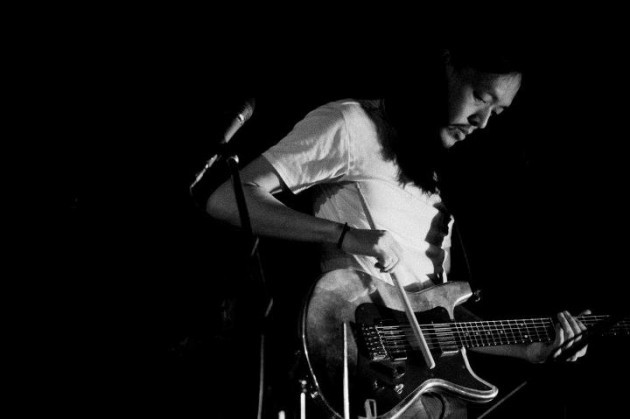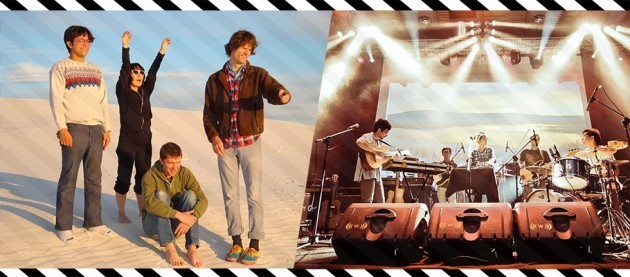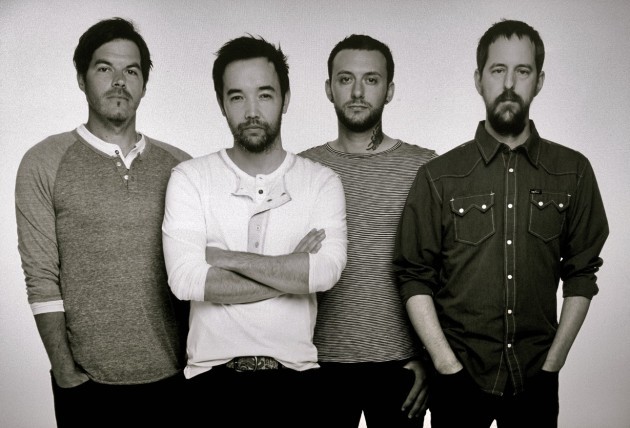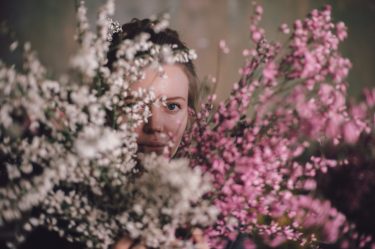Leslie Low’s a household name in Singapore’s music industry, having fronted local veteran band, Humpback Oak, back in the early 90s. He’s since experimented with noise music as Pan Gu, and is now the frontman of local art rock, experimental, and electronica band, The Observatory. The ethereal notes he produces keeps his listeners enthralled for the full breadth of each song. We go behind the scenes with the maestro known for his melodic innovation on his most recent work – the release of his fourth solo album.

We understand you’ll be performing from your personal album, No Such Thing as Ghosts, at the Bill Callahan gig. It’s been a busy year for you since releasing your sixth album with The Observatory, and now your fourth solo. What made you decide to venture into producing it?
Thanks for the invite to play this show. Early this year I stumbled onto the dub version of Dream River which I really enjoyed. This led me to check out the album itself and Bill Callahan’s earlier work. So it’s an honour and a pleasure to play this opening show. Yes, it will probably be songs from the new album. But I haven’t planned it yet. I’m currently still in The Observatory mode as we are on tour now in Norway. I’ve released several solo albums over the years. Whenever there wasn’t any band work, it was then time to explore the insular world of solo material. Half-formed lyrics and musical ideas would then be worked on in a concentrated period of time. So it’s been happening pretty regularly. My first solo album is Volcanoes. But before that I made two digital full length albums of songs called A Walking Purgatory and Black Book and released them for free. Since Volcanoes, there was Worm, followed by The Ground. And also an EP released for free called Meandering Loss and finally this year No such thing as ghosts.
What would you say most greatly influenced the lyrical direction you took with the songs?
It was influenced by Oscilla’s ethos. But from a personal point of view. Sentiments that needed expressing in order for myself to move forward. Circumstances were changing in my life and the life of The Observatory. Against the backdrop of a tiny country polarized. The lyrics came out of a need to speak plainly without fear of any boundaries and people’s conservative sensitivities. I feel we should be accepting of different opinions, practices and beliefs rather than stifling them. Fear is our biggest enemy.
We hear you’re fond of listening to Cantopop in your teenage years and that has also influenced the sound of your music. Is there one other fond memory you hold of your teenage years that has also influenced your music in some way, and how so?
The canto influence is from my Mum’s side of the family. My paternal side is English/Malay speaking. The Sound of Music was big. To top it all off, there was the influence of Roman Catholicism and church hymns that I was exposed to since young. I wouldn’t call myself religious now but it certainly has been a part of my early music education which I am grateful for. There was classical music through piano lessons. Looking back, there were many influences from my classmates from primary to secondary school, we were listening to AC/DC’s Back in Black, Depeche Mode’s Construction Time Again, Japanese Pop Group Anzen Chitai, Hong Kong’s Wynners and Sam Hui. So there was a pretty varied musical landscape available to us.
Part of the album was recorded in Bali and it also has some distinctly Balinese rhythms to it. Does Bali hold a special place in your heart, or was it out of a pure coincidence?
I’ve been there for vacations mostly and slowly started developing a love for the island, its food, culture and its people. As part of a project with The Observatory, we’ve spent some time taking beginner music lessons from two different gamelan leaders. This led to us building gamelan instruments based on our own six-note scale. We’ve also recorded an album’s worth of material as a result of the project called Continuum. I’ve recently been revisiting the mixes and hoping to release it at some point. In particular, a song like Declaration has this Balinese rhythm that I’ve tried to recreate in its finger-picking pattern. But I feel so far removed from Balinese music’s complexity. I can only draw from it in whatever possible way I can mostly as a homage to the time I’ve spent there. I am no ambassador.
If you were to pick one film for your songs to play in, which would it be and why?
I don’t really think on these terms. My songs however have been used for short films, feature length films and school projects. I’m grateful that it does get featured but the music was not created with that in mind. It’s free for interpretation. It was created to expand the listener’s mind.
Singapore has only in recent years grown to appreciate local music artistes; nonetheless, the market here is still a tough nut to crack. Do you have any top tips for aspiring local artistes on breaking into the music scene here?
Excuse me, I’m gonna get a bit long-winded here. It’s certainly gaining momentum. More people are drawn to it now. It’s a force of nature that can’t be stopped from growing even if you restrict it, like it has been done before, it will find another way to exist and proliferate. There is no big scene to break into. If you start thinking that way, then every other ‘artiste’ you meet is a competitor instead of a fellow musician struggling and coexisting in this small scene. I don’t like the word ‘artiste’. The title is meant to inflate your ego. The best thing is to think long term, build stamina through discipline. It’s good to imitate your musical heroes but don’t just stop there. Take it further ALWAYS. My personal motto from when I was in my teens right up until now is to never repeat myself. I think it has worked for my sanity and also to keep things fresh so that I could keep it going without losing interest.
It’s a really fragmented scene as well. And it’s difficult for musicians who are doing this for a living. Getting paid decent wages is tough when hobbyists are doing it for cheap. When international acts are paid way more because we are considered inferior in quality. Ask yourself if you really wanna be caught up in this coz it’s not just about making music but changing minds as well. If we don’t band together and continue undercutting each other, then there is no decent way in the long run. Exposure is a bad word. Don’t let anyone sell you that. You put it in just as much time into your craft as an international act. If the industry deems your craft as substandard then the industry is not your friend. So why play into their games? Stand up for each other. If you play for cheap, you are not helping the scene grow. We’ll always remain the third lowest quote. The opening band. Back it up with the work that you are producing, the songs that you are writing. Let’s grow this scene together.
Finally, what’s next for you?
I’ll be finishing up the tour with The Observatory. One more round of living room shows with The Diarists when I get back. We’ll head up to KL after for a weekend to promote No such thing as ghosts.
Catch Leslie at one of the shows with The Diarists, and as he opens for the Bill Callahan gig on 30th November, 8pm. Get tickets here!
Image credit: Vivian Wang






